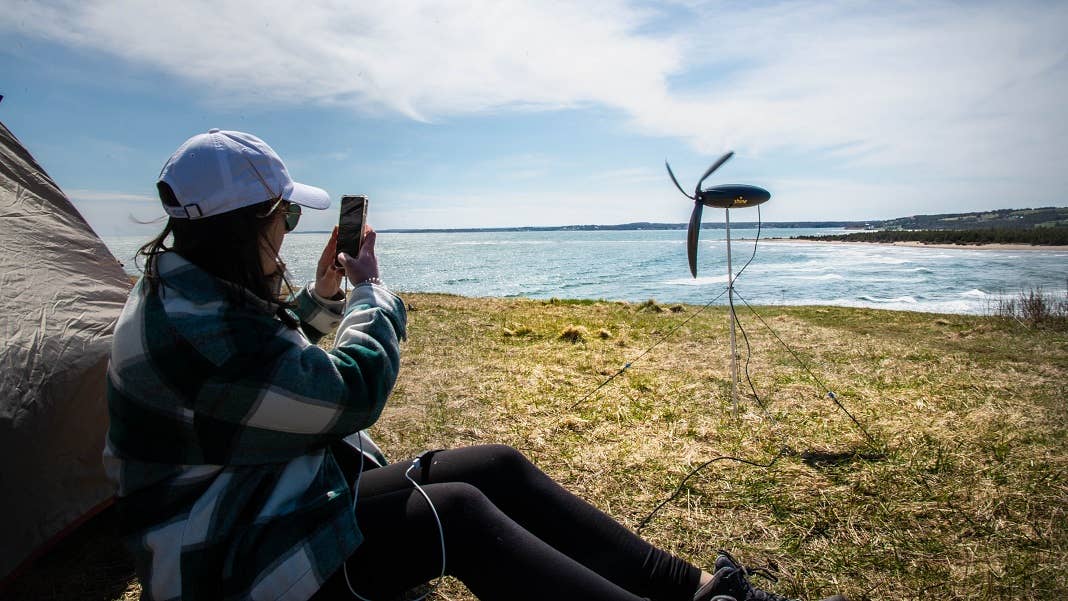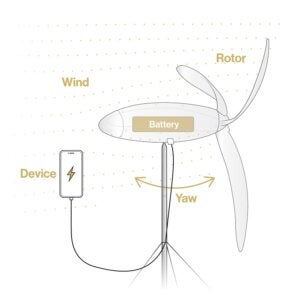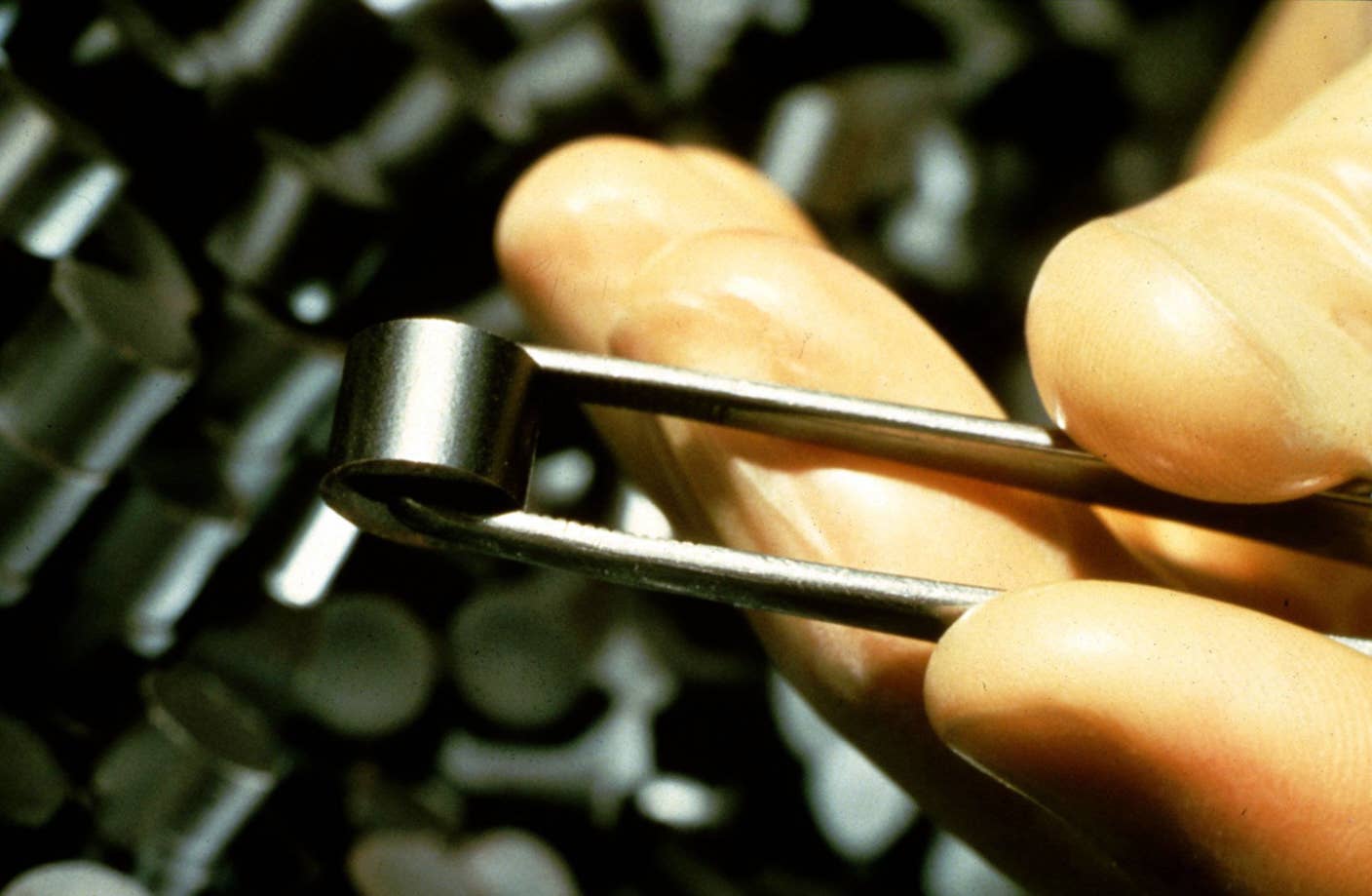This Portable Wind Turbine Is the Size of a Water Bottle and Charges Devices in Under an Hour

Share
Five years ago, a startup called Semtive Energy took the concept of a wind turbine, shrank it down to the size of a garden shrub, and started marketing it directly to households; much like rooftop solar panels, the mini turbine is intended to help homeowners rely less on the grid and produce their own clean energy.
Now another startup has taken a wind turbine, shrunk it down even more, and is marketing it to people who truly are off the grid—that is, hikers, campers, climbers, and others spending time in nature. Just under a year ago, Aurea Technologies launched a Kickstarter campaign for Shine, “an ultra-compact lightweight wind turbine that offers unrivaled performance for outdoor enthusiasts who need to recharge electronic devices.”

Image Credit: Aurea Technologies
About the size of a 1-liter water bottle, Shine weighs 3 pounds, can be set up in under 2 minutes, and will provide power at wind speeds from 8 to 28 miles per hour. It looks a lot like a mini airship on a stick. Its maximum output is 40 watts, which isn’t much; the turbine seems primarily intended to charge phones, and wouldn’t be of much use for other purposes (though the Kickstarter page mentions laptops, cameras, drones, tablets, and lights).
The best use case is for people who are on long hikes or other outdoor adventures and want their phones on to take photos, use GPS, send texts, etc. Batter packs are the current backup power sources for these types of activities, which are smaller and lighter than the Shine turbine, but have a limited amount of juice. The mini turbine, on the other hand, can provide real-time power or store energy in its 12,000 mAh (milliamp-hours) lithium-ion battery. The battery can collect three phones' worth of power in an hour when the turbine blades are rotating at full speed.
For a lot of outdoor adventurers, the extra three pounds of weight in their packs won’t be worth this small amount of electricity. But it’s a worthwhile concept—on-the-go power from a source that never runs out—and will likely start to see more iterations in the near future. Products like this could also be used in a pinch if there’s a blackout and you don’t have power at home.
Aurea’s Kickstarter campaign raised CA$210,176 (the company is based in Nova Scotia, that would be $161,335 in US dollars at the current exchange rate) and sold out the units from its first production run. The early-bird price for a Shine unit was US$240, which has now gone up to $321. Aurea launched the turbine on Indiegogo earlier this month and have already raised $297,554 as of this writing. The turbine’s creators estimate its lifespan is about five years and are aiming to ship the first units in October.
Be Part of the Future
Sign up to receive top stories about groundbreaking technologies and visionary thinkers from SingularityHub.


“We’re offering wind power that fits in your backpack,” said Cat Adalay, Aurea’s CEO and founder. “Wind is the second-largest producer of clean energy in the world, yet most people don’t have direct access to it. As a team of outdoor enthusiasts with backgrounds in science and engineering, we set out to create a wind power product that gives users the freedom to produce their own clean energy day or night, rain, cloud, or shine.”
It’s becoming more and more difficult to truly get off the grid; scenic and tucked-away spots that used to be known by few were Instagrammed into the spotlight and quickly became overrun with eager travelers (most of whom also put these places on Instagram); phone network coverage has expanded; and now you can even have renewable power out in the middle of nowhere (though this isn’t a brand-new phenomenon—small portable solar panels serve the same purpose, though at a lower power to weight ratio). Will “disconnecting” soon be a thing of the past?
Those who still want to try could simply leave their portable wind turbines at home.
Image Credit: Aurea Technologies
Vanessa has been writing about science and technology for eight years and was senior editor at SingularityHub. She's interested in biotechnology and genetic engineering, the nitty-gritty of the renewable energy transition, the roles technology and science play in geopolitics and international development, and countless other topics.
Related Articles

Meta Will Buy Startup’s Nuclear Fuel in Unusual Deal to Power AI Data Centers

Your ChatGPT Habit Could Depend on Nuclear Power

Hugging Face Says AI Models With Reasoning Use 30x More Energy on Average
What we’re reading